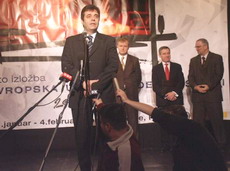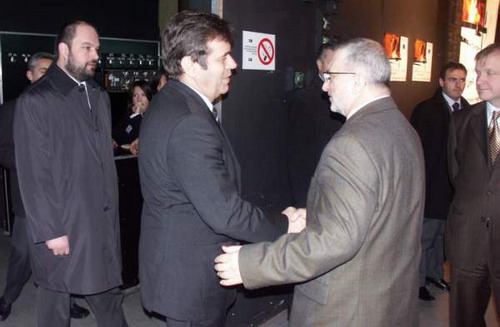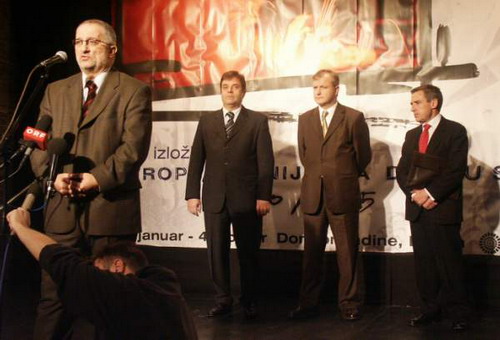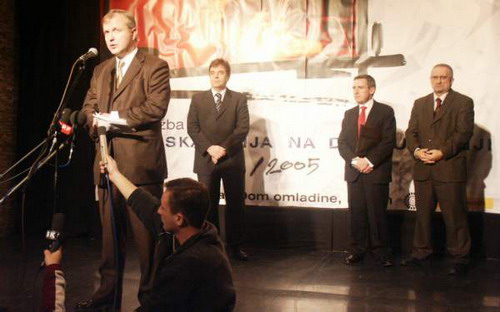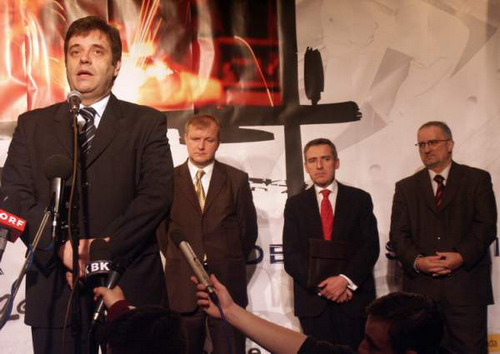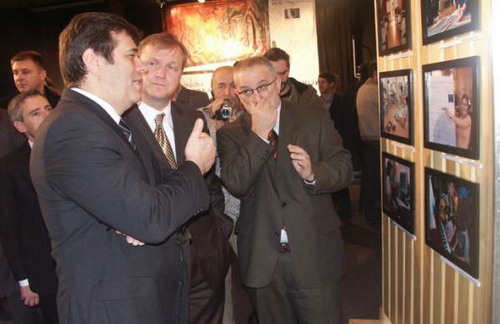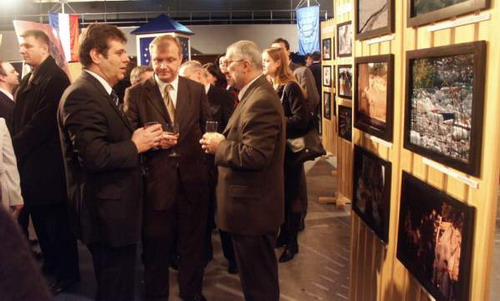- Serbia
Get to know Serbia
- Citizens
Culture and science
Health services
Pension and disability insurance
- Business
Employment
Economy
- Media
- Government
- Contact
Keep in touch
Contact form
Back
Keepin touch
Whether you have a question, comment, suggestion or any problem in the purview of the government, send us your message and we will try to respond as soon as possible. If your problem is not in our purview, we will forward your message to the relevant institution.
Q:
A:
Serbia’s firm commitment to Europe
Belgrade,
25 January 2005
Serbian Prime Minister Vojislav Kostunica said at today’s opening of a photo exhibition themed “European Union in Action in Serbia” that this exhibition is proof of Serbia’s firm commitment to Europe.
Kostunica said that Serbia is on the road to the EU, towards a new, expanding family of peoples, a family that began to take shape after World War II, but he added that Serbia was in Europe much, much earlier.
“Last year we celebrated 200 years of Serbia’s statehood and that was an opportunity to remember how Europe was deep-rooted in Serbia and vice-versa at the very beginnings of the Serbian state”, said Kostunica.
He said that the images at the exhibition remind us of how it all began, how life in Serbia started to change in the fall of 2000, with support and great efforts of the EU. The photographs will show to what extent the EU has been present in Serbia through its work ever since that critical moment of our history, said Kostunica.
Kostunica recalled that the EU’s assistance and support to Serbia started much earlier, before the September elections and October the 5th 2000, with a very important and clear message that Europe sent to Serbia, a message of friendship and support to the Serbian people and democratic changes in the country.
“We are pleased to witness once again how much has been done here over the past few years thanks to our EU friends”, Kostunica said.
EU Enlargement Commissioner Olli Rehn, who opened the exhibition, said this exhibition illustrates the significance of the work that the European Agency for Reconstruction (EAR) has done through several projects assisting Serbia on its road to Europe and he added that the EU has invested around one billion euros in Serbia’s development since 2002.
According to him, the EU’s priority in Serbia is to build and strengthen institutions, because it is of key importance for attracting more foreign investment.
The opening ceremony was also attended by Head of the European Commission Delegation in Serbia-Montenegro Josep Lloveras and EAR Director Richard Zink.
The photos displayed show the EU’s activities in 11 sectors, including energy, environmental protection, health, judiciary, internal affairs, media, and infrastructure modernization.
The exhibition, which closes on February 4, was organised by the EAR’s Belgrade office.
“Last year we celebrated 200 years of Serbia’s statehood and that was an opportunity to remember how Europe was deep-rooted in Serbia and vice-versa at the very beginnings of the Serbian state”, said Kostunica.
He said that the images at the exhibition remind us of how it all began, how life in Serbia started to change in the fall of 2000, with support and great efforts of the EU. The photographs will show to what extent the EU has been present in Serbia through its work ever since that critical moment of our history, said Kostunica.
Kostunica recalled that the EU’s assistance and support to Serbia started much earlier, before the September elections and October the 5th 2000, with a very important and clear message that Europe sent to Serbia, a message of friendship and support to the Serbian people and democratic changes in the country.
“We are pleased to witness once again how much has been done here over the past few years thanks to our EU friends”, Kostunica said.
EU Enlargement Commissioner Olli Rehn, who opened the exhibition, said this exhibition illustrates the significance of the work that the European Agency for Reconstruction (EAR) has done through several projects assisting Serbia on its road to Europe and he added that the EU has invested around one billion euros in Serbia’s development since 2002.
According to him, the EU’s priority in Serbia is to build and strengthen institutions, because it is of key importance for attracting more foreign investment.
The opening ceremony was also attended by Head of the European Commission Delegation in Serbia-Montenegro Josep Lloveras and EAR Director Richard Zink.
The photos displayed show the EU’s activities in 11 sectors, including energy, environmental protection, health, judiciary, internal affairs, media, and infrastructure modernization.
The exhibition, which closes on February 4, was organised by the EAR’s Belgrade office.
-
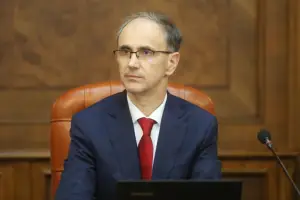 Belgrade, 11 January 2026
Belgrade, 11 January 2026Gradual stabilisation of situation caused by adverse weather conditions in Serbia
-
 Belgrade, 10 January 2026
Belgrade, 10 January 2026Increased engagement of field services due to adverse weather conditions
-
 Belgrade/Banja Luka, 8 January 2026
Belgrade/Banja Luka, 8 January 2026Respect for Dayton Agreement only path to lasting peace in region
-
 Belgrade/Banja Luka, 8 January 2026
Belgrade/Banja Luka, 8 January 2026Serbia continues to improve relations with Republika Srpska
-
 Belgrade/Banja Luka, 8 January 2026
Belgrade/Banja Luka, 8 January 2026Importance of maintaining relations between Serbia, Republika Srpska based on Dayton Agreement
-
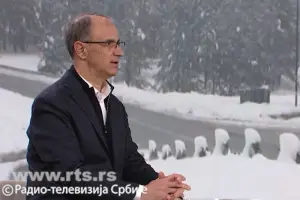 Belgrade, 8 January 2026
Belgrade, 8 January 2026Weather-related situation under control
-
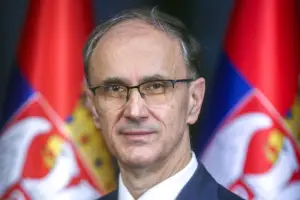 Belgrade, 6 January 2026
Belgrade, 6 January 2026Prime Minister extends Christmas greetings according to Julian calendar
-
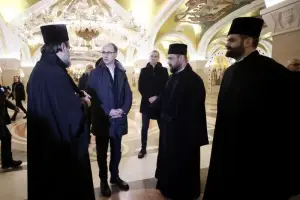 Belgrade, 6 January 2026
Belgrade, 6 January 2026Macut visits Church of Saint Sava, extends Christmas greetings
-
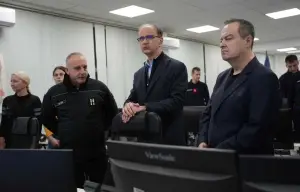 Belgrade, 5 January 2026
Belgrade, 5 January 2026All available state capacities on full alert due to heavy precipitation across country
-
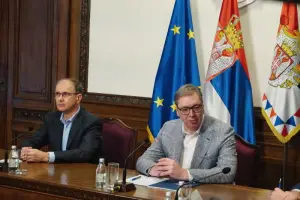 Belgrade, 4 January 2026
Belgrade, 4 January 2026Serbia closely monitoring international developments in line with its national interests

